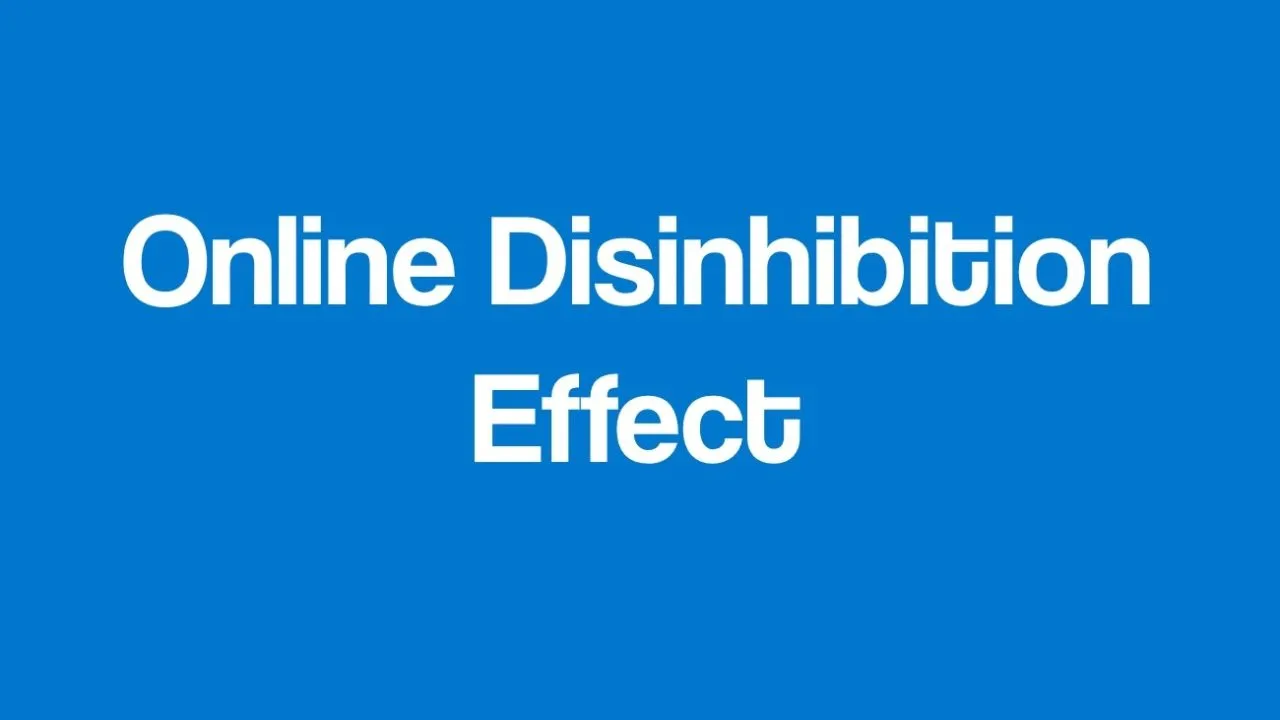Today's Thursday • 13 mins read
— by Dr. Sandip Roy.
Stalking is following another person stealthily. But online stalking or cyberstalking is more than following someone on social networks.
Online stalkers are the dark predators of our digital world — their main job is to threaten and terrify their targets.
Cyberstalking can happen to anyone. While most cyberstalking victims are women, between 20% and 40% of victims are men.
Psychology of The Online Stalker
Online stalking can be more severe than traditional stalking due to the anonymity offered by the internet.
What happens in cyberspace that collapses the psychological barriers that block uncivil acts and needs?
These are some elements of the psychology of an online stalker:
1. Shield of Anonymity
What powers an online stalker to do things they wouldn’t do in real life? Anonymity.
Being anonymous changes how stalkers see their victims. They assume that their victim is just an online entity, not a real person with feelings.
Because they don’t see their victim’s face or hear their hurt, they act more brazenly. And hurt without feeling bad about it.
Stalkers can do two things by wearing the mask of anonymity:
- Online Dissociation. They can separate their online selves from their real-life selves. This is called ‘.’ It’s like they’re creating a different version of themselves online — one that doesn’t have to follow the same rules or feel the same guilt as their real-life self.
- Online Disinhibition. They can be more daring to do unsavory things and less worried about getting caught or facing consequences. When people think no one knows who they really are, they often act differently. They can be meaner or push harder to get what they want.

The online disinhibition effect makes people feel less restrained and more open when online. It can be dangerous in two ways.
- One, it can make us reveal very personal things — secret emotions, fears, and wishes. Let us show unusual acts of kindness and generosity, even going out of our way to help others. Let us be too naive to fall into traps.
- Two, it can expose us to rude language, harsh criticisms, anger, hatred, and threats (even death threats).
Anonymity is like a villainous superpower for online stalkers — it makes them bolder and less caring about others.
2. Cloak of Invisibility
Invisibility is another powerful tool for online stalkers.
This invisibility is different from anonymity. Your cyberstalker might talk to your online persona, not your real one — and the same for you. It is like a ghost talking to another ghost over the air.
Invisible stalkers roam in text-based spaces like message boards or chat rooms. Their cloak of invisibility allows them:
- The power to dominate by humiliating others, doing or saying obnoxious things they may not even dare in real life.
- The ability to stay faceless and voiceless, even if people know who they are. This makes it easier to avoid feeling embarrassed or judged.
- Nothing to worry about how they look when they are typing a message. There’s no need to check their facial expressions, body language, or proper attire.
- Not see how others react to what they say. In real life, seeing someone frown or look bored might make them stop and back off. Online, they don’t see these cues, so they keep going.
Interestingly, this idea of invisibility is used in therapy too. Therapists sometimes sit behind their patients, so the patients can’t see their reactions. This helps people open up more.
3. Time-Bending World of Online Communication
‘Asynchronous’ communication is another tool that online stalkers use. It’s like they said something to you and then paused Time before you could answer. That is common in online spaces like message boards.
- The Runaway Effect: Some people feel like they can ‘run away’ after posting something very personal or mean. They put it out there and then don’t have to face the consequences right away.
- Emotional Hit-and-Run: As one online therapist puts it, this can lead to an ’emotional hit-and-run.’ People might say hurtful things and then disappear, not dealing with the fallout.
- No Instant Reactions: When you send a message online, you don’t have to deal with the other person’s immediate response. This can make people bolder in what they say or do.
- Time to Think (or Not): In real-life conversations, we adjust what we say based on how others react. Online, without these quick reactions, people might say things they normally wouldn’t.
For online stalkers, this time delay can make them feel safer in their harmful behaviors. Because they don’t have to face immediate consequences or see the hurt they cause.
4. Mind Merge: When Online Chats Become Inner Voices
Have you ever felt like you’re ‘hearing’ someone’s voice in your head when you read their online messages? This is a strange but common experience, where we imagine merging our mind with another’s.
For online stalkers, this ‘mind merge’ can be dangerous. It might make them forget they’re dealing with real people. They might act out fantasies or say hurtful things because it feels less real to them.
- Imaginary Voices: When we chat online, we can’t hear or see the other person. So our brain fills in the gaps. We might imagine what they sound or look like, even if we’ve never met them.
- Characters in Our Head: The person we’re talking to online can become like a character in a story our mind is creating. This character is part real (based on what they tell us) and part imaginary (based on what we expect or want them to be).
- Inner Conversations: As this ‘character’ becomes more real to us, we might start to feel like our online chats are happening inside our own mind. It’s a bit like daydreaming or writing a story.
- Talking to Yourself: Sometimes, when we read messages, we might ‘hear’ them in our own voice. This can make it feel like we’re talking to ourselves, which can make people feel safer about saying things they normally wouldn’t.
- Fantasy vs. Reality: In our imagination, we often feel free to say or do things we wouldn’t in real life. Online communication can blur the line between imagination and reality.
To a stalker, online chats can feel like they are happening entirely in their heads — not with real people with real feelings — affecting how they behave.
5. Perceived Accessibility
Online stalkers think that they know their targets are easier to reach since they know them better and for longer than others.
Nowadays, people can easily mine personal information about others from social media and other online sources.
This wealth of knowledge can make them believe obsessively about having an intimate connection and access to their target.
They can feel as if they are talking to the person as if they were sitting across them in their living room.

6. Control and Power
Online stalkers often want to control their victims. They might do this by hacking accounts, posting mean things about the victim, or using surveillance software to watch them.
7. Social Incompetence
Many online stalkers have trouble making real-life relationships.
The internet becomes their means to gain social prominence and establish a connection with their target, often in unsavory and unkind ways.
8. From Virtual to Physical Stalking
While most cyberstalkers limit their activities to the online world, some online stalkers might start following their victims in real life.
The transition from online to real-world stalking can be very dangerous and frightening for the victim.
9. Fantasy and Delusion
Online stalkers might imagine a relationship with their victim that is not, and can never be, real.
They might form delusional beliefs about their target from promotional, devotional, or fictional online posts.
10. Rejection Sensitivity and Retaliation
Online stalkers may be particularly sensitive to rejection.
They can perceive a rejection as a slight to their identity and get very upset.
They might then use online platforms for retaliatory harassment to punish those they think have hurt them.
11. Addictive Behavior
Online stalking can become like an addiction. The ease of access to information and the ability to continuously monitor or harass someone online can become compulsive.
The stalker might spend all their time seeking more details about their victim or trying to contact them.
How To Spot An Online Stalker Early
In short, remain vigilant online.
Here are some warning signs to watch for:
1. Too Much Attention. This person likes or comments on everything you post, often right away. Their excessive interest in your online activities should raise your alarm.
2. Unwanted Messages. They keep sending you direct messages, posting comments on your timeline, and tagging you in their social media posts, even when you ignore them or ask them to stop.
3. Fake Profiles. They might create fake accounts to follow you, interact with your content, or message you, especially if you have blocked their main account.
4. Collecting Too Much On You. They try to find out personal things about you without your permission, like your address, place of place, bank and identity data, or details about your friends and family.
5. Monitoring Your Online Activities. The stalker is often closely examining your digital footprint. They seem to have a knowledge bank on you — relationships, crushes, professional interactions, and even things you thought were private.
6. Contacting You Everywhere. They try to reach you through various online channels, and even offline ways like phone calls or courier services to send physical items.
7. Not Taking No For An Answer. This is Persistence After Rejection. They can continue to try engaging with you or contacting you after you have clearly rejected their advances, asked them to stop, or blocked them.
8. Using Tracking Tools. They can use software or apps to monitor your online activities, track your physical location, or spy on your digital communications.
9. Bullying Behavior. They might use intimidation tactics, like spreading lies about you, posting hateful or indecent content, or getting others to harass you (“flying monkeys”).
10. Threats And Control. The most serious part of online stalking is the dire threats. They can send you threats, manipulate you to go to dangerous locations, or induce paralyzing fear in you. They might threaten to expose your secrets if you don’t do what they want.
12 Tips to Protect Yourself From Online Stalkers
- Adjust Your Privacy Settings. Make sure your social media accounts are set to private. Choose the most restrictive settings that allow only friends or approved followers to see what you post.
- Be Careful with Personal Info. Don’t share too much about yourself online. Keep things like your address, phone number, work details as much private as possible. Don’t live-share your holiday posts.
- Use Strong Passwords. Use different, hard-to-guess passwords for all your accounts. Change them often. Consider using a password manager. Enable two-factor authentication where possible.
- Search Your Name Online. Look up your name on search engines and social media to see what information is publicly accessible. Remove any unwanted or sensitive information.
- Keep Your Devices Safe. Make sure your computer and phone have up-to-date safety software — antivirus, firewall, security patches, updates.
- Be Careful with Strangers Online. Don’t accept friend requests or messages from people you don’t know. The general advice is, “When in doubt, don’t accept friend requests.”
- Keep Track of Weird Stuff. Record suspicious activities or messages from people online, including dates, times, and details of the interactions. This could be helpful later if you need to report the stalker to authorities or take legal action.
- Use ‘Block’ and ‘Report’ Buttons. Don’t be afraid to block someone who makes you uncomfortable. Report them if they’re bothering you.
- Check Your Friends List. A helpful thing to do: Spring-clean your friends and contacts list. Look through your online friends and remove the ones you don’t really know.
- Be Careful on Public Wi-Fi. Don’t check important accounts when using free Wi-Fi in public places. If you must, then use a virtual private network (VPN) to encrypt your data.
- Know The Platform’s Policies. Learn how to report problems on the websites and apps you use.
- Ask For Offline Help. If you’re worried, talk to friends or family. They can help you stay safe.
Never ignore it if you feel unsafe online. If someone is making you feel scared or uneasy online, tell a trusted adult or contact the authorities.
Common Methods of Online Stalking
These are some ways that they harass their victims:
- Hacking their victim’s emails and contacting their friends or family, pretending to be them.
- Tracking their victim’s location and monitoring their online and offline activities.
- Fabricating or manipulating the victim’s images to damage their reputation.
- Sending threatening messages through social media or messenger apps.
- Commit identity theft and create indecent social media profiles.
- Create or share private photos and post revenge porn.
- Spread lies and rumors, and make false accusations.
FAQs
What do stalkers have in common?
2. They can be jealous and possessive toward their target’s intimate partner.
3. They also often suffer rejection sensitivity and perceive rejection as a severe assault on their self-worth.
4. Some stalkers may act impulsively, with little thought for the consequences of their actions. This makes their behavior erratic and unpredictable.
5. They have an utter disrespect for the personal boundaries of others, refusing to recognize or care about the distress their behavior causes to the victim.
6. Many stalkers are narcissists and have a psychological dependency on the target for their sense of self-worth or validation.
7. Some stalkers may suffer from mental ill-health like delusional disorders, schizophrenia, bipolar disorder, or borderline personality disorder.
What is catfishing?
The term “catfishing” gained popularity from a 2010 documentary film and subsequent TV show that explored online deception.
Signs of catfishing include avoiding showing one’s face, communicating only via online messaging, reluctance to meet in person or via video chat, and requesting money.
Catfishing can have devastating financial and emotional consequences, and people still fall for this fraud despite being vigilant and cautious in their online when interactions.
Final Words
Despite all our precautions, any of us can become a victim of online stalking.
Don’t feel alone if you believe you’re being stalked online. Don’t hesitate to seek help from law enforcement, legal professionals, or organizations specializing in cyberstalking.
Having dealt with the stalker, remember to limit your online network to people you know and trust.
√ Also Read:
- Why Are The Internet Trolls So Toxic?
- How To Deal With Internet Trolls: The 8 Best Ways
- When Life Is A Struggle: How To Find Meaning In Life
- 20 Powerful Ways To Stop Overthinking And Start Living
√ Please spread the word if you found this helpful.
• Our Story!
